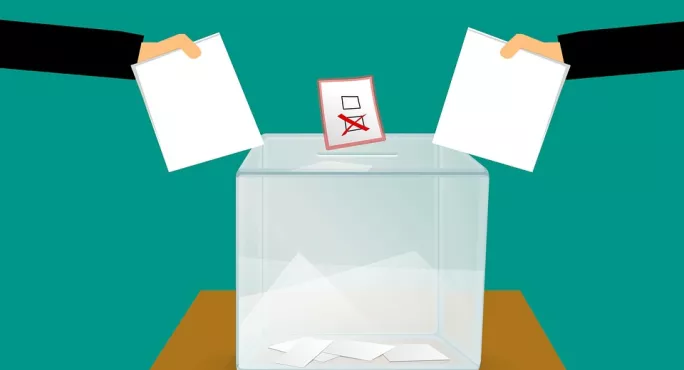Around October time, when we have our elections for class reps, I teach a lesson on democracy, in which we find out who our local MP is, learn about our democratic processes, and register to vote.
With the recent local council and mayoral elections, and also the Queen’s Speech announcement that the government intends to make voting illegal for those without photo ID, I started to reflect on our students’ relationship with democracy.
After all, in FE is when students vote, or not, for the first time.
Tes magazine: How can we turn students into (political) party people?
More by Kirsty Walker: We can push creativity without reliving Covid trauma
Long read: What would lowering the voting age mean for schools and colleges?
I really enjoy my democracy lessons. We start with a Kahoot! game, in which it transpires that some don’t know who the prime minister is, which gives me a horror story to relate in the staffroom. We then go on to look at which students care about “politics” and which don’t. Then we all register to vote, and do a non-partisan quiz in which they find out which of the major political parties align most closely with their own ideals.
Persuading college students to vote in elections
Some teachers find it hard to convince students of the need to vote, but I have an ace up my sleeve. The education maintenance allowance.
I explain that prior to its scrapping in 2010 by the Conservative-Lib Dem coalition, education maintenance allowance (EMA) was paid every week to those whose household income was under £30,000. Cue a roar of indignation - “I could have been paid for coming to college?” “They just put it in your BANK?!”
Suddenly the room is full of political firebrands who demand to have their voices heard and their free money restored. My record for students registering to vote is 78 in an academic year. A large proportion of them choose a postal vote, because while the idea of schlepping down to the local primary school in the rain is still romantic and whimsical to me, they would prefer to be doing literally anything else.
If the proposed plans to require photo ID to vote go ahead, it will make things a little more challenging. Most students do have photo ID of some kind. Not because they are keen to be involved in the democratic process, but because they want to stride into Wetherspoon at 8am on their 18th birthday and have their first “legal” pint.
Some students, though, just couldn’t afford it, or would have trouble filling in the forms, getting photos countersigned by a professional who has known them for three years or more, or even getting a photo in the first place. Recently a student needed to get a passport-style photo for a train pass and asked, “Kirsty, how do you make a selfie real? Like, it exists in this universe?” Luckily, I am always ready for such existential questions and directed them to the nearest post office.
I hope that the process to register to vote will remain untinkered with, as doing a whole class activity where I am talking them through a complex online form is what I am sure awaits me in teacher hell. If I also have to ensure that they haven’t taken passport photos with the dog filter on, I might ask for early retirement.
Kirsty Walker teaches at a college in the North West of England
